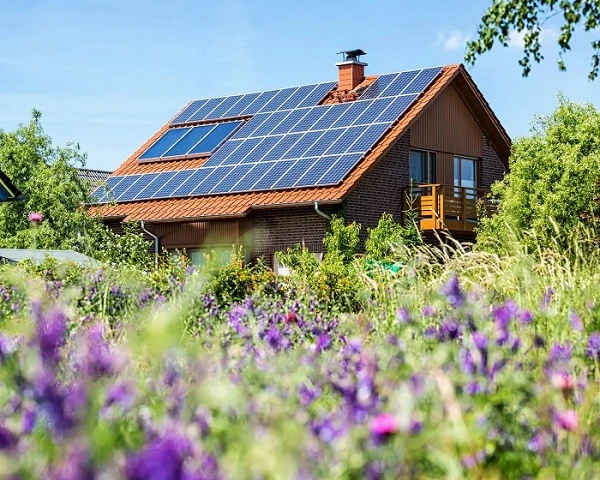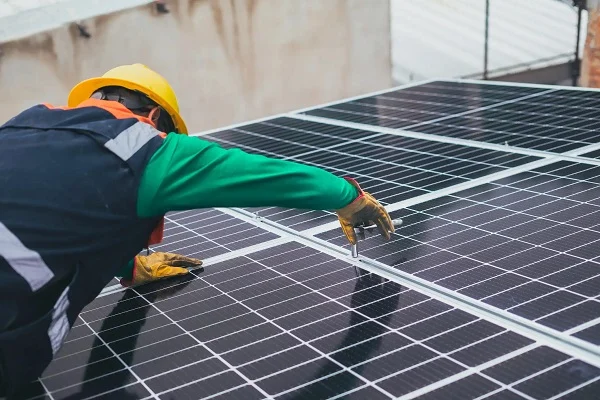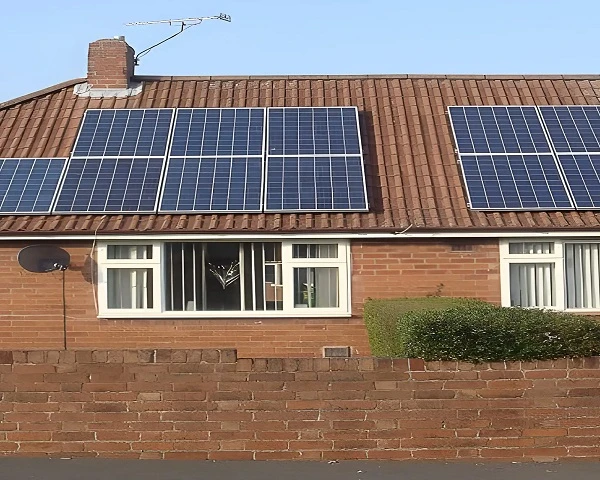What Are the Differences Between Solar PV and Solar Thermal?
Solar
Published date: 29 July 2024 / Read time: 6 mins
As energy prices continue to offer cause for concern, more of us are looking to reduce our home’s energy use but in a more environmentally friendly way. Two methods of helping to do this and both are favoured by homeowners, currently including solar PV or solar thermal panels.
Yet, though structurally both options seem to look the same, both solar PV and solar thermal provide two different solar technology solutions. This means that homeowners need to be aware of the differences to distinguish between the two when making their decisions.
Here the Energy Efficiency team at City Plumbing highlights the differences between solar PV and solar thermal to help you get the best choice for your home.

What is Solar PV?
Solar PV is a solar technology option that supplies electricity to the home via the installation of solar PV panels on the roof. These panels work to capture and indeed absorb as much sun as they can throughout the day.
When solar PV panels are exposed to sunlight, the result is a small voltage of electricity produced as energy. This captured energy is transported to an inverter as DC, an electrical direct current, then transformed to AC, alternating current.
Finally, this electricity is sent to the property’s fuse box meaning home appliances can be powered. Any excess electricity can then be stored in a battery or sent to the grid.

What is Solar Thermal?
Solar thermal is a solar technology option that supplies hot water to the home by utilising the sun's energy via the installation of solar thermal panels on the roof.
The heat is absorbed from the sun through these panels using a pump station. This circulates the fluid through the panels, releasing heat into the cylinder coil. The result is the heating of water which can then be used throughout the home.
What Are The Differences Between Solar PV and Solar Thermal?
- Excess electricity that’s generated through solar PV can be stored in batteries or re-routed back to the grid and sold. Yet any excess hot water must be used as there are no means of storing it when the tank is full. This means excess water often goes to waste.
- Solar thermal is 70% more efficient than solar PV and more effective at capturing heat from the sun, whereas solar PV has a working efficiency of around 15 to 20%
- Solar thermal is more space efficient than solar PV. Solar PV panels tend to demand a significant amount of room on a property’s roof, making them more suitable for larger properties. Solar thermal panels on the other hand are smaller designs that only take up a fraction of roof space, and are therefore better suited to smaller properties.

- Solar PV is a more all-year-round choice offering more consistency. At its peak during summer months, Solar PV is also able to provide electricity throughout winter months, with backup solutions available if needed. Solar thermal isn't as effective during winter months, especially when the sun’s weaker and the weather's dull and cloudy. And, as solar thermal isn’t a complete heating system, during this time you’ll need to find a backup system to keep accessing hot water.
- Solar PV may be costlier initially, but these panels promote a long lifespan, solar thermal panels are initially cheaper to purchase, with fewer panels required, but their lifespan is shorter than Solar PV panels.
- Solar PV can effectively supply around, on average, 60% of your home’s household energy requirements. Solar thermal is more a functional option that’s primarily used for heating water.
Is Solar PV or Solar Thermal The Best Choice For My Home?
Ultimately, both solar PV and solar thermal are fantastic solar technology choices that help homeowners access a more environmentally friendly solution for the home. So, the best choice will be that solution which is the most effective for a home’s primary needs.
Solar PV is the ideal choice for providing electricity whereas solar thermal is more suitable for providing hot water. Yet though these two can indeed work alone, combining both solar PV and solar thermal will produce the ultimate in low-carbon technology and create a thoroughly greener home.
If you're looking to make the change, contact our Renewables Team at City Plumbing. Experts in the latest energy-efficient technologies, we're perfectly placed to help homes and businesses make the smooth transition to renewable technology.




